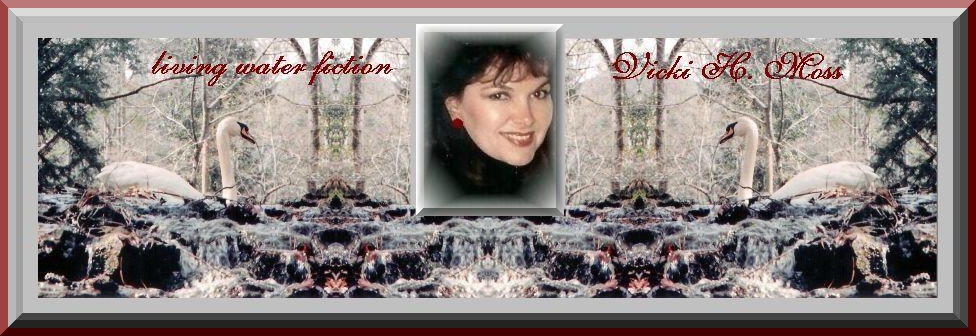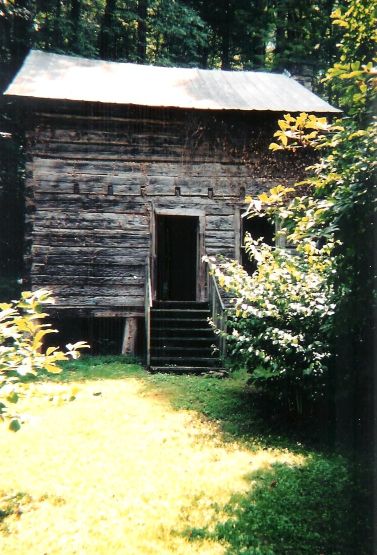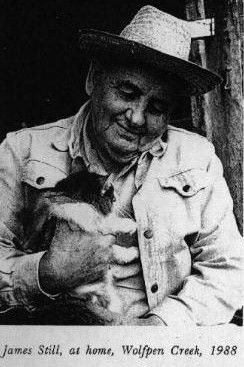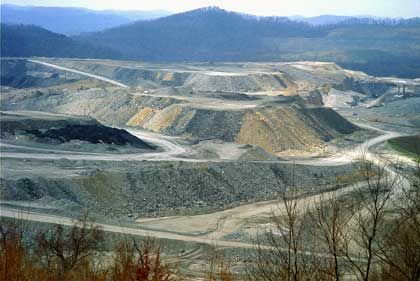
~ Vicki's Blog ~
-- Welcome -- About Me -- Fiction -- Non-Fiction -- Poetry -- Inspirational -- Young Adult -- Kids -- Awards --
-- View -- Memoir -- My Garden -- Flowers -- Tea Time -- Photos -- Faq -- Blog -- Store -- Links --

Posted February 07, 2010
JAMES STILL'S APPALACHIAN MOUNTAINS ARE NO MORE

There are many great Appalachian writers but one of my favorites is James Still - he remained in this two-story log house that once belonged to Jethro Amburgey, a crafter of dulcimers, until his death in 2001 at 94.
It was in this cabin that Still began writing River of Earth. Familiar with his subject, he knew how to work the land. Along with nine siblings, he'd farmed cotton, sugar cane, soybeans and corn in Alabama. After being educated
at Lincoln Memorial University, he made his way to Vanderbilt University in Nashville, Tennessee. It was there he became
involved in a controversial miner's strike in Wilder, Tennessee, delivering food to starving miners holding the picket line.
It was during those trials he developed a soft heart for the men who spent most of their daylight hours mining black coal deep within in the bowels of the earth.

He tried many professions - even a Bible salesman - along with a position organizing recreation programs for a Bible school in Knott County, Kentucky. Later, he became a volunteer librarian at the Hindman Settlement School in Hindman, Kentucky - a place nestled in between mountains so steep, sometimes it took the sun reaching lunch time to send its rays through the fog that settled like pea soup between creeks that sported names like Troublesome and Dead Mare. But it was in the cabin in Kentucky that he wrote a masterpiece. Listen to preacher Mobberly:
The preacher raised a finger. He plunged it into the Bible, his eyes roving the benches. When the text was spread before him on the printed page he looked to see what the Lord had chosen. He began to read. I knew then where his mouth was in the beard growth.
'‘The sea saw it and fled: Jordan was driven back. The mountains skipped like rams, and the little hills like lambs. Tremble, thou earth…’"
He snapped the book to. He leaned over the pulpit.
“I was borned in a ridge-pocket," he said. "I never seed the sun-ball withouten heisting my chin. My eyes were sot upon the hills from the beginning. Till I come on the Word in this good Book, I used to think a mountain was the standingest object in the sight o’ God. Hit says here they go skipping and hopping like sheep, a-rising and a-falling. These hills are jist dirt waves, washing through eternity. My brethren, they hain’t a valley so low but what hit’ll rise agin. They hain’t a hill standing so proud but hit’ll sink to the low ground o’sorrow. Oh, my children, where are we going on this mighty river of earth, a-borning, begetting, and a-dying – the living and the dead riding the waters? Where air it sweeping us?”
The Appalachian dialect was spoken by Brother Mobberly. Some have said it was the words of an uneducated mountain hick. However, the folks who settled in the Appalachian Mountains were some of the last hold outs who spoke Elizabethan English. James Still brought Brother Mobberly and other people of the mountains to life with his stories.
With the progression of heavy equipment and a disregard for Mother Earth, Still's mountains were being swept away.
Neither Brother Mobberly nor James Still would recognize them today as their majestic peaks have been sliced off and
the rains have washed the topsoil into the creeks and rivers, disrupting an entire ecosystem.

As preacher Mobberly said, "Oh, my children, where are we going on this mighty river of earth, a-borning, begetting, and a-dying – the living and the dead riding the waters? Where air it sweeping us?”
They hain’t a hill standing so proud but hit’ll sink to the low ground o’sorrow. Oh, my children, where are we going on this mighty river of earth?
The devastation of the Kentucky mountains brought to mind this verse: "Every valley shall be raised up, every mountain and hill made low; the rough ground shall become level, the rugged places a plain. "(Isaiah 40:4)
The earth has truly trembled. What must we do to save her?
-- Welcome --
About Me --
Fiction --
Non-Fiction --
Poetry --
Inspirational --
Young Adult --
Kids --
Awards --
-- View --
Memoir --
My Garden --
Flowers --
Tea Time --
Photos --
Faq --
Blog --
Store --
Links --
Contact Information
Email to....:vmoss@livingwaterfiction.com